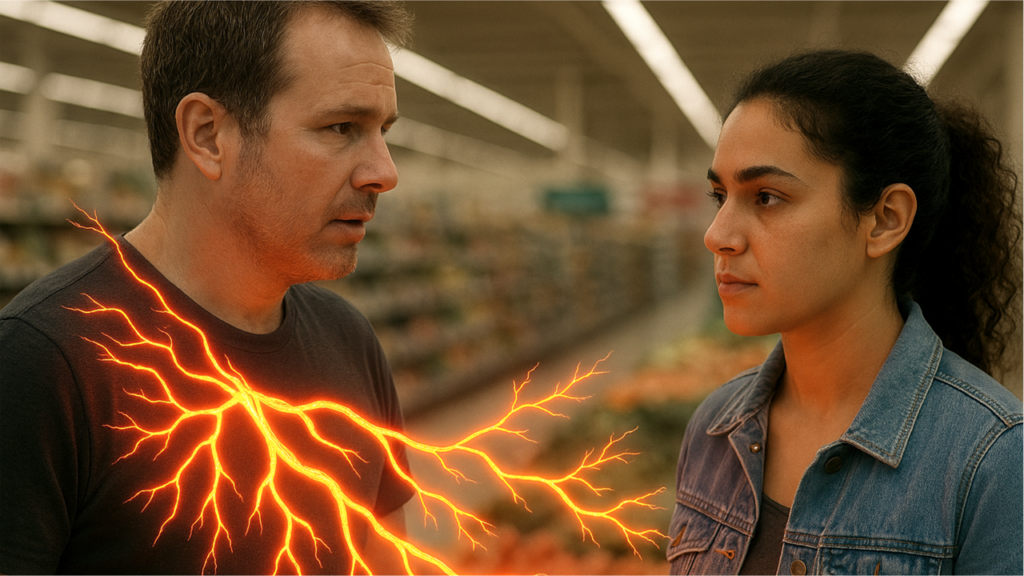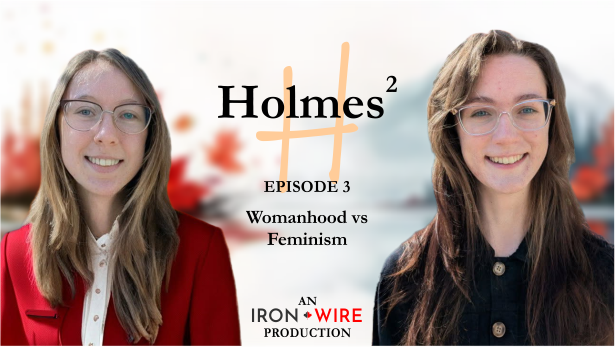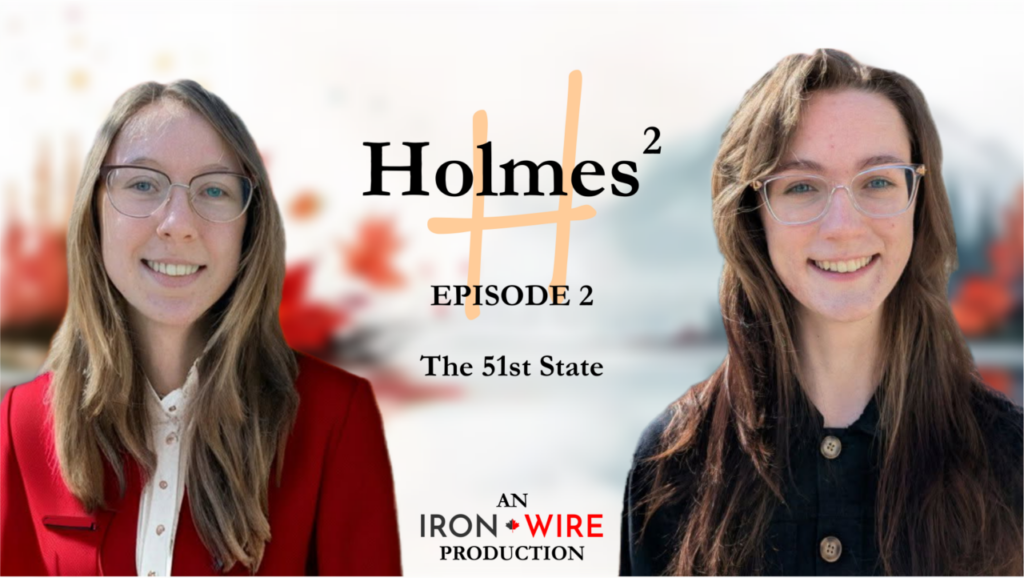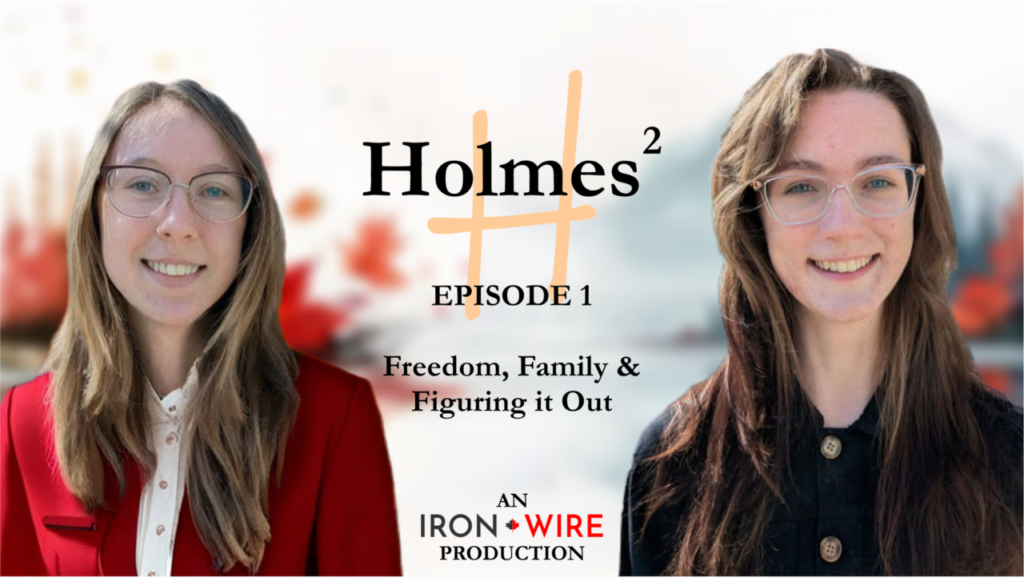Landmark MAiD Case Coming in B.C.
Source: The Iron Wire
(0:00 - 2:13) Good evening, I'm Will Dove, and these are the top stories for Monday, April 14th. Conservative leader Pierre Poilievre has announced plans to strengthen ethics and conflict of interest rules for politicians if his party forms the next government. The six-point proposal includes banning shadow lobbying, where individuals influence public policies without registering as lobbyists, and prohibiting politicians from making decisions that benefit themselves or their families above the public interest. Poilievre's plan would require politicians to seek the ethics commissioner's approval before making decisions related to their personal interests and publicly disclose those interests. He also proposed increasing penalties for ethics violations to $10,000 and implementing a tax transparency measure requiring political candidates to disclose where they've paid taxes for the past seven years. Additionally, cabinet ministers would be required to fully divest from tax havens and disclose assets to the Office of the Conflict of Interest and Ethics Commissioner with penalties for non-compliance. No more so-called blind trusts that only blind the public, Poilievre stated, while criticizing Liberal leader Mark Carney. We're going to put Canadians first for a change. We're going to have an accountable government for a change. We're going to have politicians and leaders who work for you, for your affordable home and food, for your safe street, for your paycheck, for a change. So let me lay out some of the elements of this plan. First, we will ban shadow lobbying. Now, shadow lobbying is when professional VIPs with big-shot titles call themselves advisers so that they can influence government decisions to profit themselves, but then get around lobbying rules. Mr. Carney's been famous for this. He bragged that he lobbied the British government to increase jet fuel prices while his company invested in the jet fuel. (2:13 - 4:13) He brags that he influenced governments to buy to subsidize heat pumps while his company invests in heat pumps. He says that he's going to reverse the Liberal housing crisis by having the government build prefab tiny homes while his company is invested in prefab tiny homes. In introducing Pierre and the Conservatives, Conservative MP Michael Barrett had this to say about Carney's government. He's hiding from scrutiny over the fact that he's already the most conflicted and compromised Prime Minister in Canadian history. From revelations about his cozy relationship with the Chinese government, cash stashed in offshore tax havens, and his history of lobbying governments, he's supposed to be advising to benefit his employers and his own financial interests. This is the Prime Minister who leads a Liberal party that's made up of ministers and caucus members who are responsible for the series of ethical scandals that have tarnished Canadians' confidence in our democratic institutions, like the $60 million arrive scam, the billion dollar green slush fund, the Canada student service grant where they tried to give a billion dollars to Liberal insiders at the WE organization. Mark Carney doesn't want you to think about any of that. That 87% of the cabinet that he appointed were the same cabinet ministers that advised Justin Trudeau. Meanwhile, NDP leader Jagmeet Singh has released a campaign video promising to train more local doctors, lower grocery prices, and improve infrastructure. (4:14 - 5:09) Singh pledged to invest in regional medical schools in rural communities and twin highways across Canada to make transportation safer. In the last election, we promised dental care and pharma care. You elected 25 strong New Democrats and we got it done because you voted for us. We will make life easier for regular people with national rank control, a cap on grocery prices, and a family doctor for every Canadian. As a part of Team Canada, we will stand up to Donald Trump by supporting retaliatory tariffs. We will fight to get support for workers impacted by the trade war. Of course, he didn't explain how they were going to do that. In a separate development, Liberal leader Mark Carney indicated he would pursue online speech regulation if elected. As Liberals always do, he wrapped it in language to make it sound like these new censorship measures would protect us from violence and dangerous conspiracy theories. (5:09 - 7:23) But earlier today, we announced a series of measures on crime. And we announced a series of measures with respect to online harm and other factors. And one of the observations we had, one of the issues we're dealing with, there's many serious issues that we're dealing with, with respect to crimes of violence, conjugal violence, drugs, fentanyl, others. But one of them is with respect to really just the sea of misogyny, anti-Semitism, hatred, conspiracy theories, the sort of pollution that's online that washes over our virtual borders from the United States. Carney's approach would revive previous Liberal Party attempts to regulate online speech, following earlier unsuccessful legislation like Bill C-36 and Bill C-63. While specific details weren't provided, Carney emphasized concerns about online content affecting how people behave, particularly when Canadians feel threatened in community centers, places of worship, schools, or when it impacts children. Liberal Party officials have previously argued that freedom of expression needs protection, while simultaneously suggesting it's being exploited and undermined, indicating their continued interest in regulating online discourse, despite past legislative failures. The Delta Hospice Society has been granted intervener status in a British Columbia Supreme Court case that could determine whether faith-based health care facilities must offer Medical Assistance in Dying made to palliative care patients. Chief Justice Ronald A. Skolrood made this ruling on April 1, 2025, allowing the Society to present arguments and evidence in the ongoing legal battle. The Delta Hospice Society, a registered charity advocating for MAiD-free palliative care facilities, will argue that many terminally-ill patients do not want to be asked about euthanasia and desire spaces affirming life's value and dignity in their final days. I'm joined now by Angelina Ireland, Executive Director of the Delta Hospice Society, to discuss this landmark case. Angelina, thanks for taking time for this interview. (7:24 - 9:01) Hi, thank you for having me. Now, I contacted you for this because I received a notice from the JCCF and from you that the Justice Centre for Constitutional Freedoms is representing the Delta Hospice Society in what is a very important case in British Columbia. Would you please explain what that case is about? Right, so the JCCF, and I want to thank them very much for, you know, for taking us on, you know, we have been granted intervener status on in this case. So, you know, basically we're going to be coming in as friends of the court to give them information. Information that is very important, I think, to help them with their overall decision about what's going to happen here. So this is a case, and it's a very tragic case actually, of a young woman, beautiful woman, who was a cancer patient, and the cancer had become, you know, terminal, and basically she wanted to die, and she wanted to have a MAiD to die. To make a long story, which she was in, will not produce that, will not provide that service. Okay, so she had to go to a place where it was provided, and en route to that place, she passed away. So, you know, this young woman passed away en route as opposed to bioethyl injection. Okay, so that's basically, you know, and understandably, you know, the family's crushed, and it is tragic, and I feel for them. So that's where it starts, and that's where... Because, I imagine, the family wanted to be there when she died. I don't know. Like, I can't speak to any of that. I don't know. I don't know. (9:01 - 9:30) All I'm saying is that is the foundation of the complaint, right? Right. I, beyond that, I really can't speak to it. But, you know, what we want to do as intervenors in this case is to explain to the court that, you know, it's very important that we have palliative care places protected, and of course, palliative care being a 50-year medical discipline does nothing to hasten death. (9:30 - 16:06) Right. And we're finding that these places with faith-based exemptions are the last bastions of an authentic, historically accurate palliative care protocol, right? That's it. There's nothing else left here, which is why we want to be able to explain to the court the importance of that, and that how these places need to be able to be protected as well. That, you know, our people who want to access authentic palliative care as their end-of-life choices, they need to be able to go to a place where there's, it's like a maid-free zone. And that is just as important, right? That is just as important to be taken into consideration. And that's what we're there to discuss, to talk about. So what has happened is, if I'm understanding correctly, this young woman died in transit rather than by a MAiD, and that raised something of a kerfuffle, I guess. And now the B.C. government is wanting to take away those faith-based exemptions for palliative care facilities that don't offer MAiD. Is that correct? Well, so the plaintiffs, the plaintiffs is not the government. The plaintiffs are the woman's family dying with Dignity Canada and a doctor. And they are suing the government of British Columbia, the Providence Healthcare, right? And I think there's somebody else who's also in defense. But so it's, so that's the, that's how this lines up, right? But ultimately it is going after faith-based exemptions. And, you know, I'm not a lawyer or a doctor or a nurse. I'm just a patient, you know, and I am, you know, with the Delta Hospice Society, I'm going to try to explain the importance of authentic palliative care spaces. And this case is so important because we have seen in the past how lower court decisions within the provinces has actually motivated the change in federal legislation. Okay. So I think this is just a Supreme Court decision in British Columbia. No, no, no, no, no. Just like we saw with Truchon, right? That lower court decision in Quebec actually was the catalyst for Bill C-7. So we've seen that, right? The government doesn't challenge, the government doesn't appeal, the government doesn't, you know, invoke the notwithstanding clause, you know, it just goes right ahead and changes the law. So that's why we need to be here during this case to speak for all the people literally in this country that want to have MAiD-free spaces, because literally, this is it. This is the fight. This is the last people standing who will protect authentic palliative care spaces in Canada. Yes. And this case will set a precedent possibly across the country. Absolutely it will. Not only a precedent, but it could spurn the government to just change the law, to extinguish religious exemptions, extinguish religious, the constitution, literally, right? I mean, that's how important this is. So we can't take this for granted just because it's a fairly small case in a province. We have seen how these kinds of cases are actually monsters in Canada. And when does this case go to trial, Angelina? What we don't know yet, we think it's going to be in early 2026. So, you know, the wheels of justice run really slow sometimes. And perhaps in this case, it will again, you know, take its time to work its way through, but we're ready. You know, we're ready to speak to the court to give them information that maybe they didn't have in the dossier there, in the filings. And we hope that we will have some influence in at least being able to bring information that we think is very pertinent. Right. Angelina, thank you so much for the work that you, the Delta Hospital Society, and of course the JCCF are doing to protect people's rights to have an anti-MAiD palliative care space. Thank you, Will. Last week, I released a special investigative report on MMR vaccines. This was in response to the gearing up of the fear-mongering machinery over an increase in measles cases across North America. I did my best to be balanced in this report. On one hand, the data shows that the MMR vaccines greatly reduce the odds of a child contracting measles and reduce the odds that a vaccinated child will die from the disease to near zero. On the other hand, the data also shows that the MMR vaccines may greatly increase the chances that a vaccinated child will develop autism, especially if administered before 18 months of age, according to Dr. Andrew Wakefield, who first exposed the link between the vaccines and autism. New research from Physicians for Informed Consent has sparked renewed discussion about the safety profile of the measles, mumps, and rubella vaccine compared to the diseases it prevents. The organization recently released a collection of educational documents aimed at helping physicians, policymakers, and the public better understand and compare the risks associated with both the diseases and the vaccine. The documents, published in December 2024, include disease information statements for measles, mumps, and rubella, as well as a vaccine risk statement for the MMR vaccine. According to Dr. Shira Miller, founder and president of PIC, their research has evolved since their first measles disease information statement in 2017, which initially reported a pre-vaccine measles mortality rate of 1 in 1,000 reported cases and 1 in 10,000 total cases. Their updated research now suggests that the measles pre-vaccine mortality rate was about 1 in 90,000 total cases in children who did not have a vitamin A deficiency. This represents a significant revision in their understanding of measles severity before widespread vaccination. The PIC documents highlighted several key points about both the disease and the vaccine. They assert that most measles, mumps, and rubella cases are benign and that fatality and permanent disability from these diseases were rare in the United States before mass vaccination programs. They also note that immunity from the MMR vaccine wanes over time in vaccinated children. (16:07 - 18:32) A particularly concerning claim from the organization is that seizures from the MMR vaccine occur in about 1 in 640 children, which is about 5 times more than seizures from measles infection. Research published in Nature Genetics in 2014 found that febrile seizures occurred in approximately 1 in every 1,000 children given the MMR vaccine, with two genetic variants identified that indicated a higher risk of febrile seizures in the second week following vaccination. The PIC documents also cite a review from the Cochrane Library examining more than 60 MMR vaccine studies, which concluded that the design and reporting of safety outcomes in MMR vaccine studies, both pre- and post-marketing, are largely inadequate. Additionally, they note that the Institute of Medicine, now the National Academy of Medicine, has not ruled out the possibility that MMR vaccination could lead to various neurological disorders, autoimmune diseases, fibromyalgia, and chronic fatigue syndrome. In contrast, medical consensus represented in other research maintains that the MMR vaccine provides substantial benefits that outweigh potential risks. The Children's Hospital of Philadelphia notes that while some children may develop soreness at the injection site, low-grade fever, or rarely a mild measles-like rash after vaccination, these side effects are generally mild and temporary. They acknowledge that in approximately 1 in every 3,000 to 4,000 children, fever may increase rapidly, causing a febrile seizure, but emphasize that these seizures, while scary, do not cause long-term harm. A recent case in Texas involving a child who died after testing positive for measles has further intensified the debate. While initial reports indicated the child was unvaccinated, Brian Hooker, Ph.D., Children's Health Defense Chief Scientific Officer, cautioned against premature conclusions, stating, It is very easy, and almost by design, that we would jump to the conclusion that the vaccine would have saved this child. But we have no real information at this point. Public health experts continue to emphasize that high vaccination rates, between 89 to 94% of the population, are necessary to prevent measles transmission and protect those who cannot receive the vaccine due to medical contraindications.
1 Comments
Leave a Comment Cancel Reply
You must be logged in to post a comment.













Praying for this, that it will really happen! That the new elected individuals will implement a new, trustworthy Canadian elected government that will look after us, the citizens of Canada who have been lied to for so many years as corruption has been driving the government decisions and both federally and by many of the provincial elected politician’s for health, and ignored the corruption of misleading and hiding wrong doing on so many levels.
Myrna Kerr